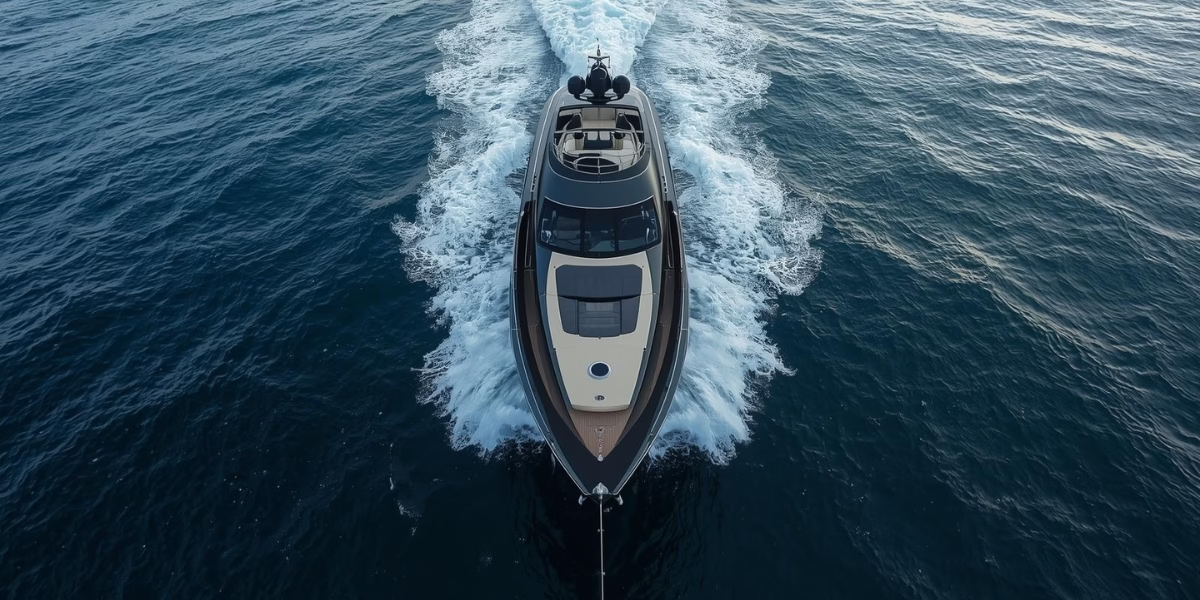Discover how Vinyl Ester Resin delivers unmatched strength, corrosion resistance, and performance for marine and offshore structures. Learn why it’s the ultimate material built for the sea.
Marine and offshore environments are some of the harshest on Earth. Saltwater, humidity, and constant pressure can corrode even the toughest materials. For engineers and manufacturers, durability is everything. This is where Vinyl Ester proves its worth.
Known for its exceptional corrosion resistance and mechanical strength, Vinyl Ester Resin has become the go-to choice for boats, ships, pipelines, and offshore platforms. Let’s dive into why this high-performance resin is truly built for the sea.
What Is Vinyl Ester Resin?
The resin is a hybrid polymer that bridges the gap between polyester and epoxy resins. It is produced by reacting epoxy resin with methacrylic acid, resulting in a material that combines the toughness of epoxy with the versatility of polyester.
This unique composition gives it superior chemical resistance, flexibility, and impact strength; all crucial features for structures exposed to seawater and extreme weather.
In short, Vinyl Ester Resin offers the perfect balance of durability and processability for marine and offshore applications.
Why Vinyl Ester Resin Excels in Marine Applications?
Marine environments are unforgiving. Metals corrode, coatings peel, and composites degrade over time. However, Vinyl Ester Resin performs exceptionally well because of its molecular structure and chemical stability. Let’s explore the reasons it stands out.
Vinyl Ester Resin Provides Unmatched Corrosion Resistance
The biggest enemy in marine environments is corrosion. Constant exposure to saltwater and moisture can quickly damage conventional materials. Vinyl Ester Resin forms a tight, cross-linked polymer network that resists water absorption and chemical attack. This prevents blistering, cracking, and delamination, even in submerged conditions.
As a result, ship hulls, tanks, and offshore platforms made with Vinyl Ester Resin stay intact and functional for longer periods, reducing maintenance costs.
High Mechanical Strength and Flexibility
Marine structures endure waves, wind, and high loads. Vinyl Ester Resin provides excellent tensile and flexural strength, allowing components to absorb shocks without breaking. Unlike brittle resins, it offers superior elongation and toughness, making it ideal for applications like boat hulls, decks, and offshore composite structures.
Even under extreme mechanical stress, Vinyl Ester Resin maintains its integrity, a quality every marine engineer values.
Outstanding Adhesion and Lamination
When bonding fiberglass or other reinforcements, adhesion is critical. Vinyl Ester Resin provides excellent bonding with glass fibers, carbon fibers, and other composites. This strong interfacial adhesion creates laminates that are both lightweight and highly durable. These laminates are widely used in the construction of yachts, fishing boats, and floating docks.
Superior Chemical and Thermal Stability
In offshore industries, structures are exposed to harsh chemicals like fuels, oils, and cleaning agents. Vinyl Ester Resin withstands chemical exposure without losing its strength or gloss. It also resists temperature fluctuations caused by sunlight, seawater, and engine heat, making it perfect for both surface and underwater use.
Cost-Effective and Long-Lasting
While Vinyl Ester Resin may cost slightly more than polyester resin, its longevity offers significant savings over time. Reduced maintenance, fewer repairs, and longer service life translate into lower overall costs for shipbuilders and offshore operators. It’s a one-time investment that pays off for decades.
Common Applications in Marine and Offshore Structures
The versatility of Vinyl Ester Resin makes it suitable for a wide range of applications, including:
- Boat and yacht hulls: Offers smooth finishes and long-term durability.
- Offshore oil and gas platforms: Resists corrosion and chemical exposure.
- Pipelines and storage tanks: Prevents leaks and degradation under seawater.
- Ballast tanks and water treatment units: Ensures structural integrity in submerged environments.
- Composite gratings and decks: Lightweight yet strong and non-corrosive.
Each application benefits from the resin’s ability to handle the unique challenges of marine conditions.
Sustainability and Environmental Advantages
Today, the marine industry is moving toward sustainability. Vinyl Ester Resin supports this shift by enabling lightweight, long-lasting structures that reduce resource consumption.
Its high strength-to-weight ratio means vessels require less fuel for movement, reducing emissions. Additionally, its long service life means fewer replacements and less waste, contributing to greener marine operations. Manufacturers are also developing low-styrene or styrene-free versions to further minimize environmental impact.
Future of Marine Composites
As marine engineering evolves, Vinyl Ester Resin continues to play a leading role. Innovations like nano-reinforcement and bio-based resin systems are making it even stronger and more sustainable.
Future ships and offshore installations will rely more on advanced composites for weight reduction, performance, and corrosion resistance, areas where Vinyl Ester Resin will remain a cornerstone material.
Concluding Thoughts
In the world of marine and offshore engineering, reliability is non-negotiable. Vinyl Ester Resin delivers it with confidence. Its superior corrosion resistance, strength, and adaptability make it the preferred choice for structures that must survive the harshest environments on Earth. From boats to oil platforms, it ensures every structure truly lives up to its built for the s
COMPANY INFO
Website: www.crestresins.com
Phone: +91 9879233188
Email: enquiry@crestresins.com
Address: 605/A, 6th Floor, Tower D, Times Square Grand Office, Sindhubhavan Marg, Near Taj Hotel, Ahmedabad, Gujarat - 380059

